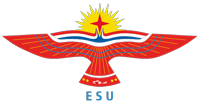2013
Syriacs react to minister’s wording regarding Mor Gabriel Monastery
Syriac communities outside Turkey have reacted against recent remarks by EU Minister Egemen Bağış apparently denigrating the value of the Mor Gabriel Monastery. Bağış had said on June 21 that the historical monastery, an issue of contention between the government and Syriacs, was worth "even less" than the EU Affairs building in central Istanbul.
| Read more … Syriacs react to minister’s wording regarding Mor Gabriel Monastery
The dramatic situation of Syriac Christians and the possible role of Turkey
SYRIA / The dramatic situation of Syriac Christians and the possible role of Turkey
Interiew with Mr. Evgil Turker
Persecuted by Assad, threatened by Jihadists, and fleeing the war that is raging in the country: this is the sad fate of Syriac Christians, a people living between Syria and Turkey. Recently, the Minister of Foreign Affairs in Ankara has suggested granting citizenship to all Syriac Christians who have Turkish citizen as relatives and who are in danger from the revolution taking place in Syria. However, as noted by Evgil Turker, head of the Federation of Syriac Associations, "Turkey itself does not fully recognize the rights of our community, to the point that many of us have had to emigrate. The only solution is an intervention by the international community in Syria. I believe that NATO and the Arab League bear a great responsibility which must be addressed as soon as possible."
| Read more … The dramatic situation of Syriac Christians and the possible role of Turkey
Syrian Syriac National Council Urges Support of Christians in the Country
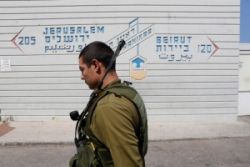
Bassam Isaac, the Head of the Syrian Syriac National Council, called on different organizations in Syria to pay attention to the immigration of Christians, and stressed the importance of them remaining in the country.
| Read more … Syrian Syriac National Council Urges Support of Christians in the Country
TO THE WORLD PUBLIC OPINION
The Uprising in Syria which started on March 2011 continues constantly. The regime of Assad tries all means to stop and crash this uprising. Thus, the country had turned into the ruins and hundreds of thousands families fled their country. While the rebels fighting against fascist practices of the regime, on the other hand some marginal groups and gangs belonging to the regime terrorise people and civilians. With these terror acts all Syrian people are affected as well as Syriac people and their religious institutions. Until today hundreds of Syriac-Greek-Maronites had been killed because of their Christian belief. Hundreds of Syriacs had been kidnapped for high amounts of ransom and when the ransom is not provided the victims are killed with barbaric ways. Business establishments and domiciles had been priority for the attacks and the gangs.
POUR L’OPINION PUBLIC MONDIALE
Le soulèvement qui a commencé en Mars 2011 en Syrie continue sans cesse. Le régime d’Assad utilise tous les moyens pour cesser le soulèvement. Par conséquent, le pays est en ruines et des milliers de familles ont du quitter leur pays. Pendant que les rebelles luttent contre les pratiques fascistes du régime, d’autres groupes marginales et les gangs liés au régime terrorise la population. Par conséquent, tous les Syriens sont affectés ainsi le peuple Syriaque et ses institutions religieuses. Jusqu’à aujourd’hui, des centaines de Syriaque- Grecque-Maronites ont été tué à cause de leur identité Chrétienne. Des centaines de Syriaques ont été kidnappé pour des rançons et des sommes très élevé et faute de provision de rançon les ravisseurs tuent leur victimes. Les établissements commerciaux et les domiciles sont prioritaires pour les gangs.
State spares 1 million lira budget for Mor Gabriel Monastery
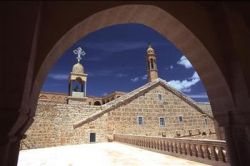
Midyat Governor’s Office has allocated a budget of 1 million Turkish Liras for the restoration of the road leading to the Syriacs’ Mor Gabriel Monastery, a move viewed by the Syriac community as contradictory as the monastery was previously labeled an “occupier” and its lands were transferred to the Treasury.
| Read more … State spares 1 million lira budget for Mor Gabriel Monastery
The Unbearable Lightness of Syria Policy
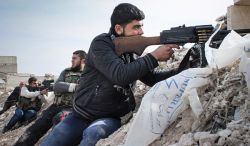
Supporting Assad’s non-jihadist enemies may be our least bad option.
But deciding on something is what presidents get paid the big bucks to do. Obama is right to find the available options unappealing, but the problem remains. Declining to choose is no solution; it simply leaves it to others including those most hostile to America to call the shots.
How to Save a Dying Language
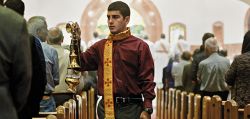
It was a sunny morning in May, and I was in a car with a linguist and a tax preparer trolling the suburbs of Chicago for native speakers of Aramaic, the 3,000-year-old language of Jesus.
The linguist, Geoffrey Khan of the University of Cambridge, was nominally in town to give a speech at Northwestern University, in Evanston. But he had another agenda: Chicago’s northern suburbs are home to tens of thousands of Assyrians, Aramaic-speaking Christians driven from their Middle Eastern homelands by persecution and war. The Windy City is a heady place for one of the world’s foremost scholars of modern Aramaic, a man bent on documenting all of its dialects before the language—once the tongue of empires—follows its last speakers to the grave.
Syriac Orthodox Christians in Turkey: ''This Is Simply Our Home''
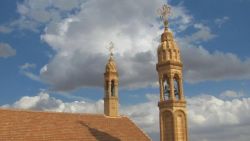
In recent years, around 60-100 Syriac Orthodox families have returned from central Europe to Turkey. Encouraged by changes in the political atmosphere, the minority nonetheless faces a host of problems, from the expropriation of land belonging to a monastery, to a ban on special schools and kindergartens, and also a lack of places of worship in Istanbul. By Ekrem Eddy Güzeldere
| Read more … Syriac Orthodox Christians in Turkey: ''This Is Simply Our Home''
Christians Squeezed Out by Violent Struggle in North Syria
MIDYAT, TURKEY — The bright voices of children at play echoed off the ancient walls of Mor Hanonyo last week, breaking centuries of stillness in this 1,600-year-old Syriac Orthodox monastery outside Mardin in southeastern Turkey. Little boys skipped around the monastery courtyard zipped up in quilted winter jackets, while their elders huddled indoors and lamented the violence and mayhem that have forced them to flee their homes in Syria.
| Read more … Christians Squeezed Out by Violent Struggle in North Syria

